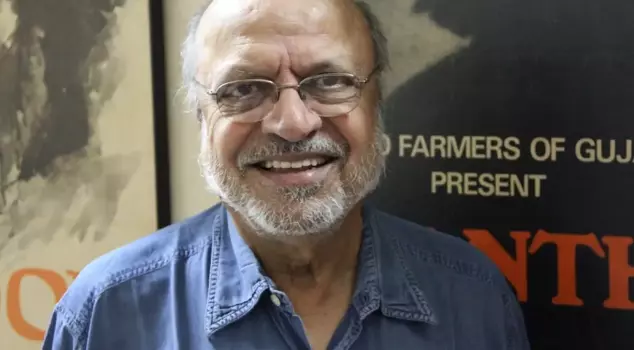
24.12.2024 12:10
Shyam Benegal, one of the prominent figures of India's parallel cinema movement, has passed away at the age of 90. His daughter, who announced the sad news, stated that he died after his condition worsened due to kidney issues.
The news that will shock Indian cinema was announced by Pia Benegal. Shyam Benegal, one of the important figures of the parallel cinema movement in India during the 1970s and 1980s, passed away at the age of 90.
FAMOUS DIRECTOR PASSES AWAY
The legendary director's daughter, Pia Benegal, confirmed her father's death in a statement to Indian media outlets. Pia Benegal stated that her father passed away due to chronic kidney disease in Mumbai, the capital of Maharashtra. Benegal said, "He passed away yesterday at 18:38 at Mumbai Central Wockhardt Hospital. He had been suffering from chronic kidney disease for several years, but his condition had worsened significantly. This was the cause of his death."
WHO IS SHYAM BENEGAL?
Shyam Benegal, born on December 14, 1934, was an Indian film director, screenwriter, and documentary filmmaker. He is generally regarded as a pioneer of parallel cinema and is widely considered one of the greatest filmmakers after the 1970s. He received numerous awards, including eighteen National Film Awards, a Filmfare Award, and a Nandi Award. In 2005, he was honored with the Dadasaheb Phalke Award, India's highest award in cinema. In 1976, he was honored with the Padma Shri, the fourth highest civilian honor in the country, by the Government of India, and in 1991, he was awarded the Padma Bhushan, the third highest civilian honor, for his contributions to the arts. Benegal passed away on December 23, 2024, at the age of 90 at Wockhardt Hospital in Mumbai, where he was being treated for chronic kidney disease.
Benegal is famous for his classics such as Ankur (1974), Nishant (1975), Manthan (1976), Mandi (1983), and Zubeidaa (2001), which address social reform, women's rights, and the divisions present in Indian society.
WHAT IS PARALLEL CINEMA?
Parallel cinema, or New Indian Cinema, is a movement in Indian cinema that emerged in the 1950s in the state of West Bengal as an alternative to mainstream commercial Indian cinema. Inspired by Italian Neorealism, Parallel Cinema began just before the French New Wave and Japanese New Wave, and it was a precursor to the Indian New Wave of the 1960s. The movement was initially led by Bengali cinema and produced internationally acclaimed filmmakers such as Satyajit Ray, Mrinal Sen, Ritwik Ghatak, Tapan Sinha, and others. It later emerged in other film industries in India. It is known for its serious content, realism, and naturalism, characterized by a sharp perspective on the socio-political climate of the time, symbolic elements, and a general rejection of the song and dance routines typical of mainstream Indian films.